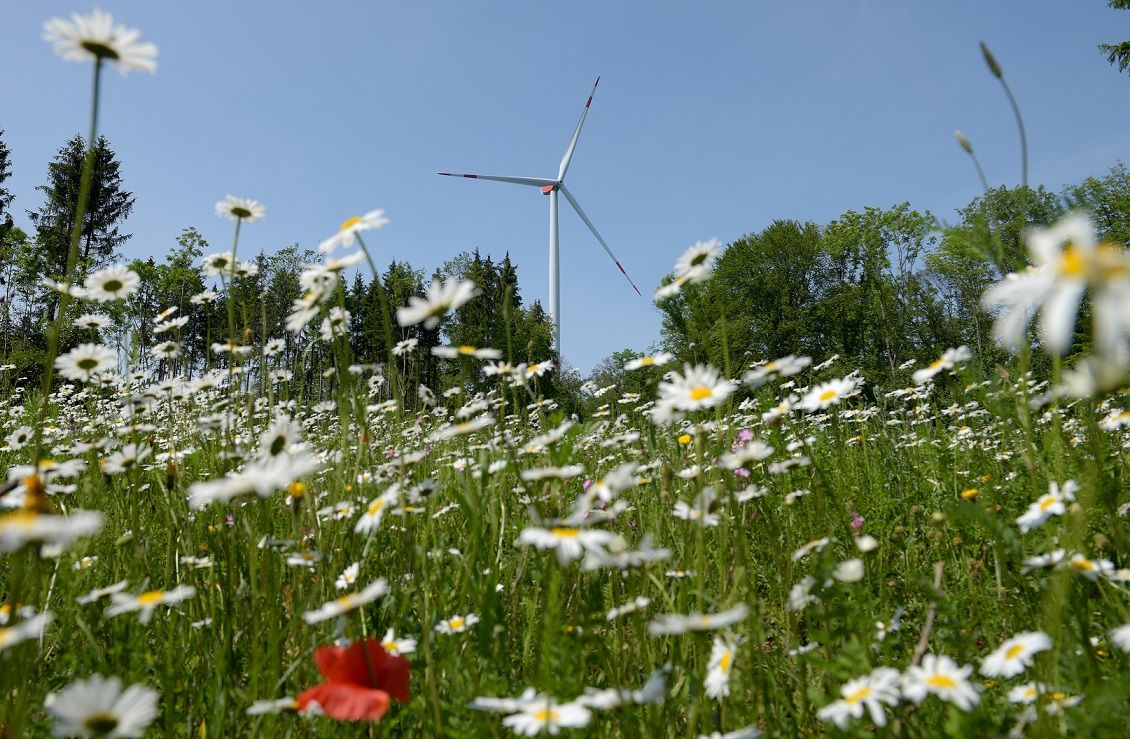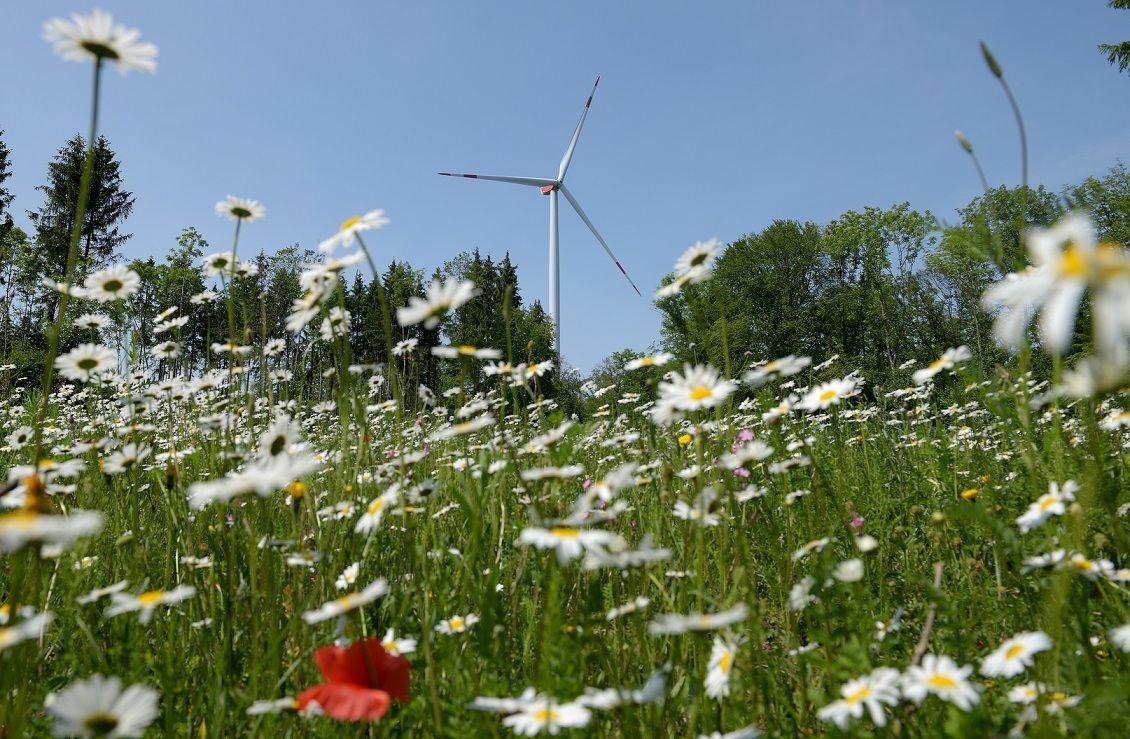
Flowers bloom in front of a windmill in Stuttgart. (picture alliance/dpa/archive)
Renewables generated a record 44 per cent of Germany's electricity in the first half of 2019, with onshore wind leading the way, the BDEW (Federal Association of Energy and Water Management) energy association reported on the basis of preliminary figures on Wednesday.
Windy conditions contributed to the rise from 39 per cent recorded in the first half of last year, the BDEW said.
Onshore wind generated 55.8 billion kilowatt hours, 18 per cent up on the year. Solar generation rose by 1 billion to 24 billion kilowatt hours. And offshore wind provided 12 billion kilowatt hours, up 30 per cent on the year.
A total of 36.7 kilowatt hours were generated by other energy sources, mainly biomass and hydroelectric, 500 million kilowatt hours up on the year.
While the figures appeared impressive, BDEW head Stefan Kapferer said the situation remained problematic.
"The renewable electricity record is a pleasing snapshot, but should not be allowed to conceal underlying structural problems," he said.
At the current rate of expansion, renewables would generate 54 per cent of electricity by 2030, against a government target of 65 per cent, he said.

Notice: No person, organization and/or company shall disseminate or broadcast the above article on Xinhua Silk Road website without prior permission by Xinhua Silk Road.




 A single purchase
A single purchase









